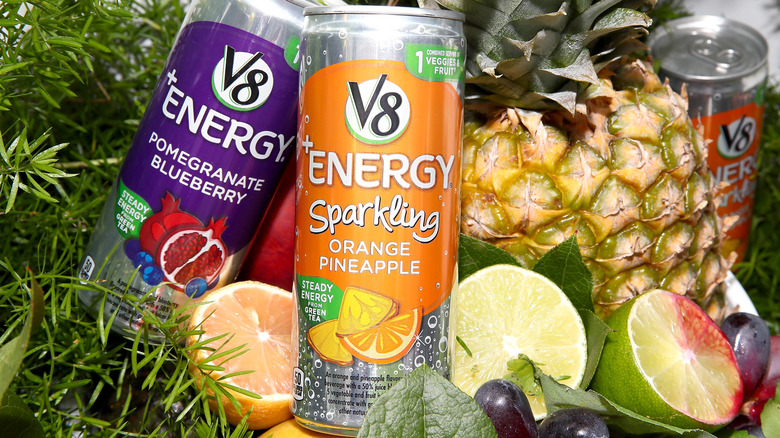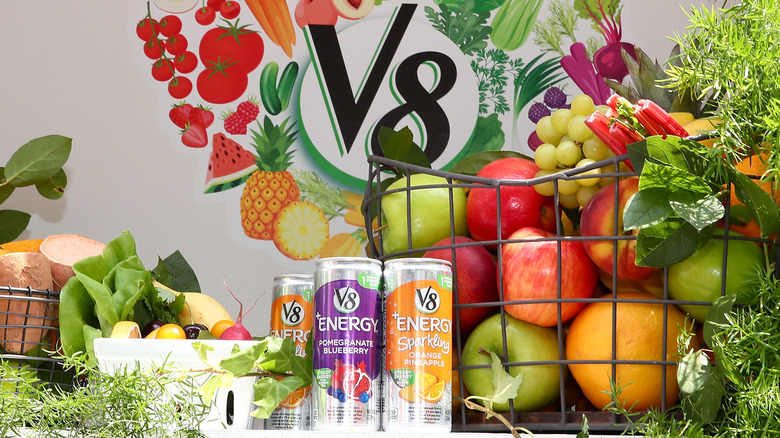
As detailed in the book “Sports and Energy Drinks,” the concept of energy drinks originated in Japan during the early 1960s (via Science Direct). These early energy drinks were formulated with additional caffeine and vitamins, which are common components in many energy drinks available today.
The energy drinks market is extensive, featuring a variety of products that promote themselves as beverages capable of enhancing your energy levels. This industry continues to thrive, with sales in the United States rising by nearly 6% in 2020, according to Statista.
Despite the significant presence of energy drinks, the Food and Drug Administration (FDA) does not regulate them, nor does it differentiate energy drinks from sports drinks (via USADA). Therefore, it’s crucial to be aware of the ingredients in the energy drinks you consume and understand the potential effects of caffeine and sugar levels on your body. According to the National Institutes of Health, there is growing scientific evidence indicating that energy drinks can have significant health impacts, particularly on children, teenagers, and young adults. Does this apply to V8 energy drinks as well?
They claim to be ‘a healthier alternative’

V8 is a beverage brand under Campbell’s, established in 1933. Campbell’s refers to V8 as “the original plant-powered Drink” (via Campbell’s). In 2012, Campbell’s expanded its brand with the introduction of V8 energy drinks, which the company described in a press release as “a healthier alternative to most energy drinks on the market.”
Regarding the original V8 product, Healthline notes that it is not exactly a “superfood” because processing reduces the natural fiber and vitamins of the vegetables. Building on this, we examine the V8 +Energy drink. An ingredient in these drinks that some nutrition experts view negatively is sucralose, a sugar substitute known as Splenda. Dana James, a triple board-certified nutritionist and founder of Food Coach, explained to Well+Good that “Sugar substitutes are controversial, but recent research indicates that artificial sweeteners like aspartame or Splenda can negatively impact the gut microbiome.” Nonetheless, Medical News Today lists V8 +Energy among the “top natural energy drinks” for its moderate levels of naturally occurring caffeine, along with vitamins C, B6, and B3.
However, the site emphasized that even if an energy drink contains some beneficial ingredients, the best way to maintain overall wellness is through a healthy diet, adequate hydration, limited alcohol consumption, avoiding smoking, and sufficient sleep. While energy drinks may be suitable for an occasional boost in alertness and concentration, they should never replace healthy lifestyle practices.




